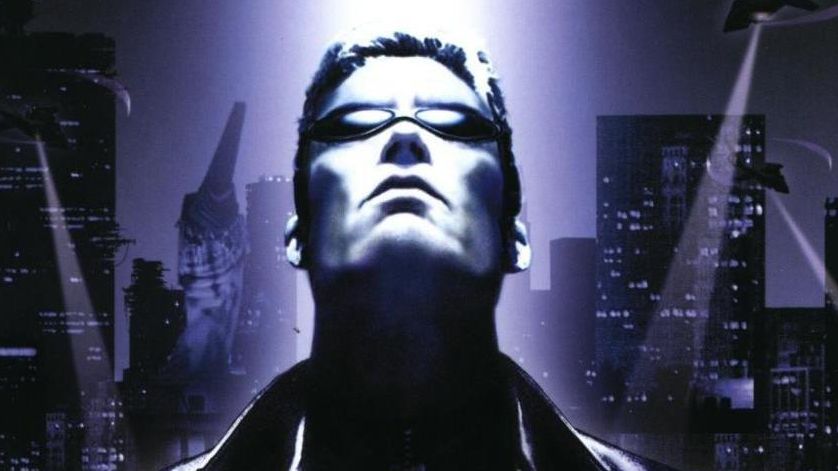The 50 most important PC games of all time
They changed how we make games, how we play games, and they changed us.

Honorable mentions
Well, that's it—you made it through our list of the 50 most important PC games of all time. Chances are, at some point you said "I can't believe ___ didn't make the list!" As it turns out, there are a lot of great, influential PC games we couldn't find room for.
When we first started putting the list together months ago, it contained more than 100 entries, with inspiration from "Best ever" lists from old issues of PC Gamer and Computer Gaming World—and even then we were doubtless missing some that really were important. It's an impossible task to narrow more than thirty years of history down to 50 games, and it meant sacrificing games we loved—Jordan Mechner's Prince of Persia and Brian Fargo's Wasteland, for example—for games that we ultimately felt had a larger impact on the overall history of the PC. Prince of Persia's animation was amazing, but did it influence the games that came after, or change how we played PC games? Wasteland was a uniquely open-ended RPG, but did later games have more impact doing similar things?
Narrowing the list was a constant battle between "first" and "best"—doing something first is obviously important, but sometimes it's the second or third time around that an idea really sticks, and changes everything. (Your "um, actually" friend may like to point out that Kill.Switch had a cover system three years before Gears of War, but there's no argument over which is the more important game). And some games didn't make the cut simply because they weren't important as PC games, even if they were important in the grand scheme of things. Tetris is undeniably one of the most important games ever, but it did more for the Game Boy than it did for the PC, at least outside of Russia.
There are niches here and there that had their own monumentally important games, and it was hard to say how much those mattered in the grand scheme of things. Sims and wargames are lightly represented, but up against most of the games listed here, it was hard to argue for their inclusion. Hell, we even thought about Farmville... but to hell with Farmville.

Finally, some honorable mentions: games that didn't quite make the cut, but still deserve a spot in the PC gaming scrapbook.
Microsoft Flight Simulator (1982): But which one? Microsoft released more than a dozen versions of Flight Simulator over 20 years, and it's probably spent most of its life as the most ubiquitous airplane sim on the PC.
M.U.L.E. (1983): A groundbreaking multiplayer strategy game based around collecting and trading resources. First launched on the Atari 400 computer before later making its way to systems like the IBM PCjr.
The biggest gaming news, reviews and hardware deals
Keep up to date with the most important stories and the best deals, as picked by the PC Gamer team.
Wasteland (1988): Without Wasteland, there would be no Fallout, and the core of Fallout was there from the beginning: a persistent world and open-ended design with multiple paths to success. Or, usually, death.
Prince of Persia (1989): One of the all-time great platformers that uses rotoscoping to great effect, adding life to the movements of the Prince in a way we'd never seen before.
Another World (1991): An early example of how moving storytelling can be without words, and how powerful art can be with nothing but vectors. Nothing like it really followed, and only in recent years have more games followed in Out of This World's footsteps.
Outcast (1999): Around the dawn of 3D accelerator hardware, Outcast did amazing things with software rendering, if you had a CPU mighty enough to run it. Long live the voxel. Graphics technology aside, it was an ambitious adventure with cutting-edge AI for 1999.
America's Army (2002): Few games can boast to have the real-world utility of America's Army, used by the military as a training sim. Is it actually a game, at that point?
Unreal Tournament 2004 (2004): Perhaps the all-time great of arena first-person shooters. UT2K4 may not have had the influence of Quake III, but it was a hell of a game. Instagib forever.
Crysis (2007): But can it run Crysis? That refrain isn't just a joke: it speaks to how synonymous Crysis was with high-end PC gaming. Crysis was a rare and important technology showpiece that pushed hardware development forward and gave the PC a long-needed status symbol.
Mass Effect (2007): The beginning of the modern action RPG hybrid, and a turning point for Bioware as an RPG developer. Branching narrative paths with consequences and context had never been done on this scale before, or with this degree of fidelity.
The Elder Scrolls V: Skyrim (2011): Bethesda had "made it" with Morrowind, and its follow-up open world RPGs Oblivion and Fallout 3 only cemented their success and popularity. But Skyrim succeeded on another level. Skyrim was Hollywood-caliber big, and its success and acclaim inspired the next wave of incredibly detailed open world games.
Dark Souls (2012): Japanese games are finally coming to the PC with regularity and finding massive success. Dark Souls helped prove there was a PC audience hungry for Japanese games, and anger over its gimped port also set the bar for its followers.
Kerbal Space Program (2015): When we revisit this list, Kerbal Space Program will likely be on it. Not only does it embody the awe and majesty of space flight, it serves as a powerful learning tool that we hope to see children and adults "playing" with for years to come.
Credits
Each "why it's important" summary masterfully written by Richard Cobbett, whose knowledge of everything PC gaming is nearly as vast and deep as his hatred for Myst.
Huge thanks to everyone who contributed to this feature and helped make it something special!
Images were captured or collected from game artwork and screenshots all over the web, including the following sources: MyAbandonWare (Civilization), Freakygamingcom (Dota), 8BitCity.Blogspot (Dwarf Fortress), ForceForGood.co.uk (Frontier: Elite 2), MMOs.com (League of Legends), Tio Taviera on Steam (Morrowind), Archive.org (Pinball Construction Set), Fabiansanglard.net (Quake 2), Wikipedia (Second Life), Joi Ito on Flickr (Spacewar!), ShatteredStar.org (World of Warcraft).

Wes has been covering games and hardware for more than 10 years, first at tech sites like The Wirecutter and Tested before joining the PC Gamer team in 2014. Wes plays a little bit of everything, but he'll always jump at the chance to cover emulation and Japanese games.
When he's not obsessively optimizing and re-optimizing a tangle of conveyor belts in Satisfactory (it's really becoming a problem), he's probably playing a 20-year-old Final Fantasy or some opaque ASCII roguelike. With a focus on writing and editing features, he seeks out personal stories and in-depth histories from the corners of PC gaming and its niche communities. 50% pizza by volume (deep dish, to be specific).

